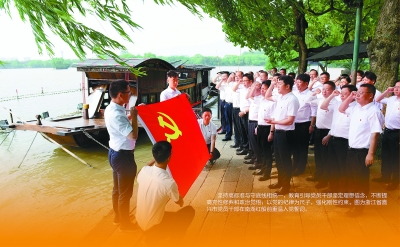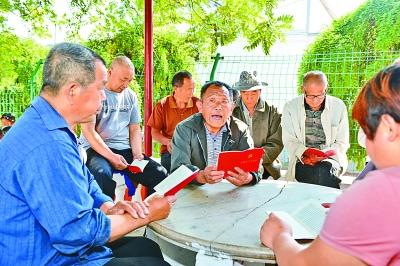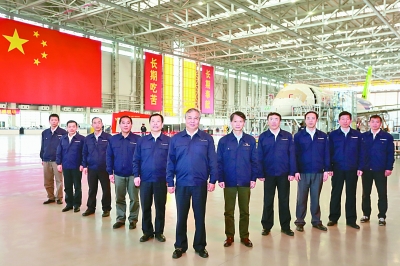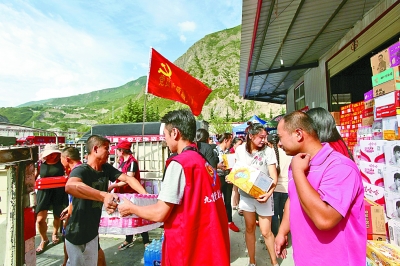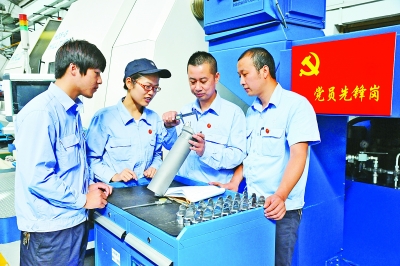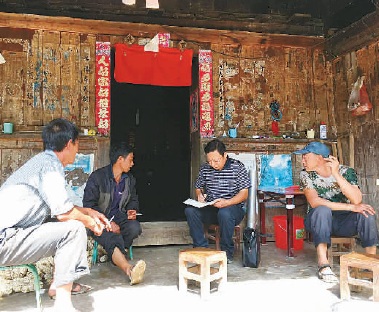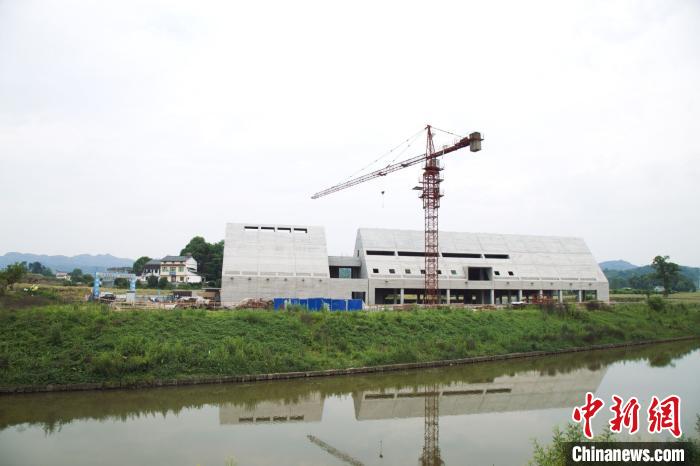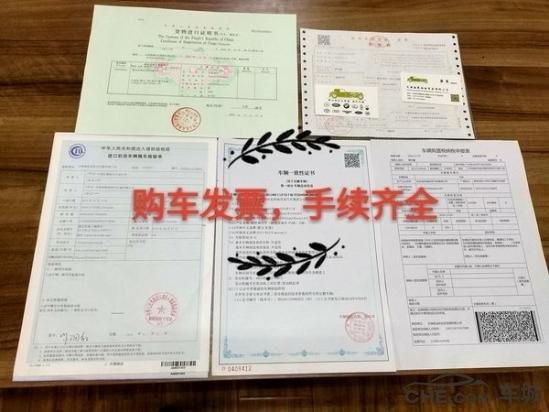Whenever I walk on the quiet avenue of Dongjiaomin Lane, I will be filled with emotion. Although this hutong is only 1,552 meters, it has witnessed the humiliating diplomatic history of modern China. Dongjiaominxiang is the embassy district and garrison of foreign powers in the late Qing Dynasty. During the period of the Republic of China, the Six Kingdoms Hotel built on the east bank of Yuhe Bridge was a diplomatic place all over the world. "A new pool in the ruling and opposition" says: "Chonglou overlooks Yuheming, and the wine and grapes are clear. One seat talks about what’s going on in the world, and sure enough, the six countries are vertical and horizontal. "
There are many old hotels in Beijing, and there are many records related to them in the archives. In addition to the Six Kingdoms Hotel, the more famous hotels are Beijing Hotel and Oriental Hotel. In those stormy years, many little-known stories happened in these hotels.
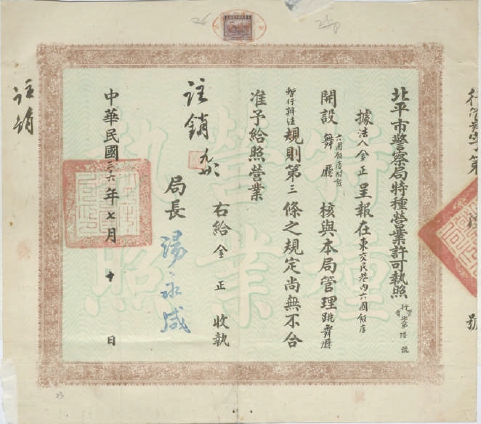
On July 10th, 1947, the special business license issued by Beiping Police Department was kept in Beijing Archives.

On July 28, 1947, the circular of the seven-district police sub-bureau of Beiping police station about the six-country hotel holding a dance in violation of regulations and banning it was hidden in the Beijing Archives.
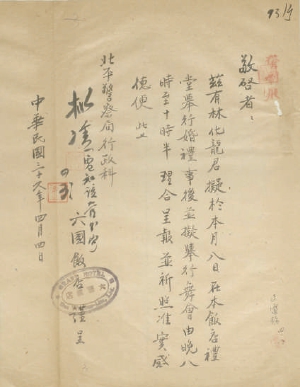
On April 4, 1947, citizen Lin Hualong’s application for holding a wedding banquet and dance in the Six Kingdoms Hotel on the evening of April 8 was hidden in the Beijing Archives.
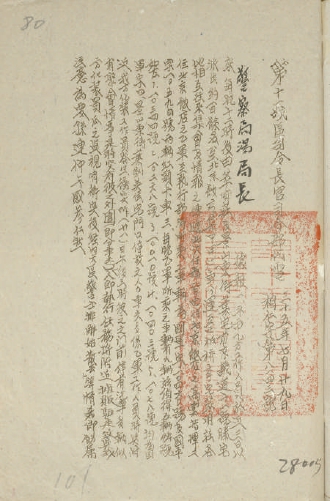
On May 21, 1947, the secret telegram No.28005 of the Kuomintang Eleventh Theater Command was hidden in the Beijing Archives.
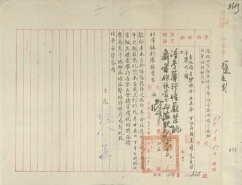
In January 1948, the official letter of Beiping Shengli Radio Station about holding a music evening in Beijing Hotel was kept in the Beijing Archives.
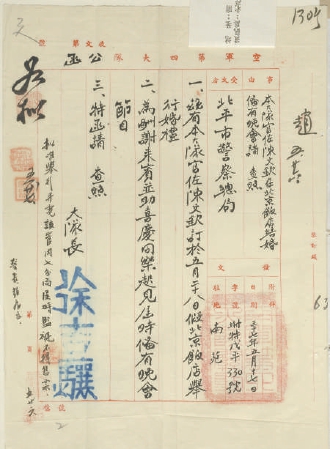
In May 1948, the official letter of Chen Wenqin, an air force officer of the Kuomintang, holding a wedding in Beijing Hotel was kept in the Beijing Archives.
The 1911 military commander was in trouble at the Six Kingdoms Hotel.
The Six Kingdoms Hotel is located in the core area of Dongjiaomin Lane, where Taibu Temple was located in the Ming and Qing Dynasties. According to Yanjing Congkao, "The former Taibu Temple is now the Six Kingdoms Hotel and the embassy of Belgium." In the 26th year of Guangxu reign in Qing Dynasty (1900), Eight-Nation Alliance invaded Beijing, and used part of the original site of Taibu Temple to build a six-country hotel jointly by Britain, France, the United States, Germany, Japan and Russia, and the other part was built as a Belgian embassy. Due to an accidental fire in the 1980s, the Six Kingdoms Hotel has disappeared. Today, Huafeng Hotel is just a new building on part of the original site of the Six Kingdoms Hotel.
On October 10th, 1911, Wuchang Uprising broke out. As the main organizer and leader of the Uprising, Zhang Zhenwu made great contributions. When Li Yuanhong was vice president, Zhang Zhenwu publicly expressed his opposition. In August 1912, at the invitation of Yuan Shikai, Zhang Zhenwu went to Beijing. Li Yuanhong immediately sent a secret telegram to Yuan Shikai, and they planned to kill Zhang Zhenwu. According to the archives published by the Second Historical Archives of China, on August 11th and 15th, 1912, Li Yuanhong sent two secret telegrams to Yuan Shikai in succession, "begging for help from Zhang Zhenwu". August 15th: "Zhang Zhenwu colluded with bandits, sabotaged the Republic, and plotted evil, which really disturbed the overall situation …" He intended to harm Zhang Zhenwu on the charge of communicating with bandits.
After entering Beijing, Zhang Zhenwu was busy contacting members of the League, but he was in danger but didn’t know it. On the evening of August 15th, Zhang Zhenwu was invited to attend a banquet in the brightly lit Six-Country Hotel. The banquet was a banquet at the Hongmen Gate. Duan Zhigui, the chief commander in Beijing, sat in the chief. His purse contained a "military order to execute Zhang Zhenwu". At the beginning of the banquet, Duan Zhigui left under the pretext of going to the toilet and never came back. After the banquet, when Zhang Zhenwu and his party were still sober, they were arrested by soldiers who had already set an ambush and sent to the military and political law enforcement office of Yuhuangge, Xidan archway. Director Lu Jianzhang announced: "The president received a secret telegram from the vice president, saying that Zhang Zhenwu led Fang Wei, a party member, to seek evil in Beijing and undermine reunification, that is, to do the right thing." Zhang Zhenwu, the leader of the revolutionary party who made great contributions to the revolution, was killed in this way.
The archives of the Republic of China in the Beijing Archives also record the case of Zhang Jingyao’s daughter shouting "injustice" after she entered the Six-Country Hotel under the pseudonym Chang Shigu and was assassinated by the military. On May 12, 1933, the letter No.246 from the Public Security Bureau of Beiping Municipal Government was a letter addressed to Bao Yulin, the public security bureau chief, with the signature of "orphan" daughter Zhang Jixia, claiming that "Zhang Jixia reported that her late father Zhang Jingyao had been assassinated, so please arrest the murderer". It is also said that "my late father Jing Yao came to Tianjin in recent years and devoted himself to Buddhism … because he connected two threatening letters at home last month … in order to avoid trouble, his family advised him to stay in Beiping temporarily, but it was easier to change his name completely." Zhang Jingyao, a warlord in Anhui Province, was once the governor of Hunan Province. Because of his greed, he was expelled from Hunan Province by the Hunan people in the Zhang-displacement movement. In 1932, Zhang Jingyao colluded with the Japanese army, joined the puppet Manchukuo government, plotted to establish a puppet regime in Peiping, and coordinated the Japanese Kwantung Army to occupy Peiping and Tianjin. After receiving the news, the Kuomintang military commander organized the assassination of Zhang Jingyao.
In January, 1933, Zheng Jiemin, the head of North China District of the Fuxing Society of the Military Regiment, disguised himself as a returned overseas Chinese and settled in the Six Kingdoms Hotel. Zheng Jiemin quickly detected the room number and specific location of Zhang Jingyao. Zhang Jingyao, his adjutant and chief of staff Zhao Tinggui live in three rooms on the same floor respectively, and they often change rooms when sleeping at night. It’s hard to start work when there are many people during the day, and it’s even harder to act at night. Zheng Jiemin informed Wang Tianmu, the special agent of Beiping Station, and appointed Bai Shiwei of Beiping Station as the executor of this operation. The executive team made a detailed assassination plan and a route to cover the assassin’s retreat, and arranged a car to meet the assassin.
In the early morning of May 7, 1933, Zhang Jingyao got up to shave as usual, and Bai Shiwei suddenly appeared at the door of the washroom. Zhang Jingyao found a fierce look back, moustache just facing Bai Shiwei. Passing 18-wheeler, three clear shots were fired, and three bullets were accurately shot into Zhang’s head, and Zhang immediately fell to the ground and was killed. The next day, the major newspapers in Beiping published the news that "Changshigu, a giant businessman, was stabbed to death in the six-country hotel in Dongjiaominxiang". The Kuomintang newspaper later confirmed that "Changshigu", namely Zhang Jingyao and Zhang Jingyao, was a traitor, sneaked into Peiping to plot and instigate a rebellion, and was killed by the "Anti-Japanese Anti-Japanese Anti-traitor Salvation Mission".
You have to apply to the police for holding a dance.
Six countries hotel took the lead in setting up a colorful dance floor and became the first communication place in Beiping that year. In 1928, Jin Bihui, a traitor, met Zhang Zuolin’s adjutant in the dance floor of the Six Kingdoms Hotel, relying on his skillful dance moves and coquetry, spying on the information about his return to Northeast China in Zhang Zuolin, and grasped the exact time for the Japanese army to kill this uncooperative general. This incident was heated up in the press. In March 1947, Jin Bihui was sentenced to death, and the traitor got his due end.
In August 1945, Japan surrendered, and the Six Kingdoms Hotel became a special guest house for the US military. On April 19th, 1946, according to a report to the Beiping Police Department by Hansfeller, the manager of the Six Kingdoms Hotel, most of the rooms were lent to the Field Service Corps of the Allied Committee as "the first guest house of the Allies, but the people of the Allies were accustomed to dancing, so they stopped dancing every time they came back from business or dinner". However, considering the Chinese habit, they decided to choose a room in the hotel for regular dances and decided to use the tea room as a dance floor.
On April 19th, 1946, Kim Jong, the French manager of Six Kingdoms Hotel, submitted an application to the Beiping Police Department for attaching a ballroom to the Six Kingdoms Hotel, and submitted three guarantees: first, the band temporarily hired foreign musicians to accompany it; second, it did not hire dancers; third, it was open once or twice a week. On June 13th, the Six Kingdoms Hotel said in a report to the police station in Beiping: "It is planned to set up a dance floor in the hotel, and employ three musicians, without dancers and tickets. Taiwan ticket is a night dance from 9: 00 pm to 12: 00 pm every day, and tea and dance are held from 5: 00 pm to 7: 00 pm on Wednesdays, Saturdays, Sundays, etc., specially for the allied forces and our guests … "On July 10, Kim Jong-un’s application was approved, and the Beiping Police Department issued a special business license with the signature and seal of Beiping Police Chief Tang Yongxian. According to the legal person Kim Jong-il, there is no disqualification in the third article of the provisional rules for the administration of dance halls in the six countries’ hotels in Dongjiaominxiang. Grant a license to operate. "
Six countries hotel failed to fulfill its promise after obtaining the business license of ballroom. According to the records of Beiping police station, on July 28th, 1947, the report of Beiping police station that "the dance for the Six-Country Hotel was banned in violation of regulations" said that the Neiqi Branch found that the Six-Country Hotel did not fulfill its promise during the inspection, so it was reported to the administrative section of Beiping police station for approval to ban its dance.
Director Tang Yongxian instructed in the report: "It is noted that the Beiping Police Department is allowed to hold a dance for the Six-Country Hotel in violation of the regulations to handle the report of the banned appraisal for future reference, and immediately take care of the hotel’s action at any time!" On September 30th of the same year, with the approval of the Beiping Municipal Government, the Six-Country Hotel, where the dance was banned, set up an international club, and stipulated that "all members must hold a membership card, and the membership card must pay 20,000 yuan, and the duration is not fixed …"
The Six Kingdoms Hotel is also a place for rich people to hold weddings. The file once recorded that on March 28th, 1947, citizen Chen Fengnan got married and held a family dance here and reported it to the Public Security Bureau. The other was on April 4, 1947, when Lin Hualong planned to hold a wedding and dance in the auditorium of the Six Kingdoms Hotel on April 8.
The Six Kingdoms Hotel was once a favorite haunt of thieves. After a guest was robbed of silverware in the Six Kingdoms Hotel, he suddenly found that silverware was particularly familiar when he visited the Qianmen Quanyechang. He suspected that his stolen silverware was stolen, but he was refused to negotiate with the seller and had no choice but to buy it back at a high price. Later, I felt wronged and called the police. A detective found a stolen copper spoon in Bo Gu Zhai antique shop in Kannonji Street, Qianmen, and followed the thief.
The spy war before dawn
In the winter of the 26th year of Guangxu (1900), two the French opened a pub in the east of the foreign barracks in Dongjiaominxiang, Beijing, specializing in western-style fried pork chops and red wine at twenty cents a cup. In 1901, the tavern moved to the west of the original Dongdan vegetable market, and hung up the signboard of "Beijing Hotel", and the Italian Rosso set down the tavern. In 1903, the hotel moved for the third time, and a five-story red brick building was built at the south entrance of Wangfujing (now the former site of the new building of Beijing Hotel). In 1907, Sino-French Industrial Bank took over the Beijing Hotel and changed it into a limited company, which marked that the hotel became the leading high-class hotel in Beijing from architectural style to internal facilities. In 1917, Beijing Hotel expanded and developed to the west again, and a 7-story French building (now Block B of Beijing Hotel) was built next to the west of the original site. After the expansion, the hotel has all kinds of bars, dance floors, haircuts, telephones and toilets, and is known as the only luxury hotel in the Far East, making it the first choice for Chinese and foreign guests to stay.
According to the records, "The luxury suite of Beijing Hotel has four meals a day, one breakfast, one lunch, one afternoon tea and one dinner. Living for 34 yuan a day is equivalent to the salary of a primary school teacher for one month. " Ballroom with spring floor in Beijing Hotel, because the floor is elastic, it feels relaxed and passionate to dance, especially rumba. In Zhang Henshui’s novel "The Cause of Crying and Laughing" and Lin Yutang’s novel "Clouds in Beijing", he vividly described the scene where the socialite He Lina danced at the Beijing Hotel and Mochow fantasized about getting married at the Beijing Hotel.
After the victory of the Anti-Japanese War, Beijing Hotel was taken over and managed by the Kuomintang Beiping government. In December 1945, the Communist Party of China (CPC), on behalf of Zhou Enlai, Zhang Qun, on behalf of the Kuomintang, and Marshall, on behalf of the United States, established the Executive Department of Military Mediation in Beiping. Since 109 members of the Chinese Communist Party delegation from the Ministry of Military Affairs settled in Beijing Hotel, the hotel has been full of Kuomintang agents disguised as waiters.
On May 21st, 1946, according to the secret telegram No.28005 of the 11th War Zone Command of the Kuomintang, it was said that "in the past three days, Party B’s staff in Pingshi have been sent by Cuimingzhuang, Yezhai on Jingshan East Street and Tengzhai on No.11 Gyeonggi Province to gather in Beijing Hotel every night, and transported to Lizhai and Cuimingzhuang in Xibanqiao by car, and the mutual meetings and information transmission … were all under the command of Beijing Hotel Rong Gaotang …" It was recorded in the secret telegram.
Among the secret cables of the Kuomintang, No.11 Gyeonggi Province was Teng Daiyuan’s residence, which was then the consultant of the Executive Department of Beiping Military Mediation. Xibanqiao Lizhai refers to Li Kenong’s residence, and Cuimingzhuang Hotel is the seat of the Chinese Communist Party delegation.
The Beijing Hotel, which is under the jurisdiction of the Kuomintang, was chosen as the residence of the Chinese Communist Party delegation by the Military Command Department in Beiping, which is not only convenient in transportation, but also safer in public places. Under the eyes of the Kuomintang, the delegation of the Communist Party of China took the Beijing Hotel and other places as transit points, fought with the Kuomintang day and night, spent countless dark nights, and greeted the dawn of the birth of new China.
There are many records in the archives. Beijing Hotel has held many aid and fund-raising performances, often held weddings and dances, a six-story roof garden, and held many summer music evenings. In January, 1948, Liu Tiehua, the headmaster of Beiping Private Huizhong Girls’ Middle School, sent a letter to Tang Yongxian, the police chief of Beiping City: "It has been ten years since the school was founded, and the funds in the school are very difficult, but there are many students, and the poor students are eager. Especially, most of the students are cut off from their financial resources, unable to live and unable to pay their tuition fees. Today, we have to pay for the next season. Therefore, in order to avoid students dropping out of school, it is specially planned to hold a music and dance party at Beijing Hotel on February 9-14. On the sixth day, except for expenses, all the expenses for poor students will be paid. I hereby petition … "On January 23 of the same year, yenching university Peiping Homecoming Association decided to apply for holding a thank-you music party at Beijing Hotel in order to thank all sectors of society for their financial aid to poor students at Yanda University. Because "prices have been soaring recently, people’s livelihood has become increasingly difficult. Before this meeting, in order to understand the difficulties of poor students in Yan University, we launched a relief campaign for poor students in school and collected donations from all parties for relief. Thanks to the sympathy of all walks of life, I am happy to sponsor it. In order to thank people from all walks of life for their generous donations, I will hold a music evening at Beijing Hotel at 6 pm on January 31 to show my respect. "
Celebrities gather in the Oriental Hotel.
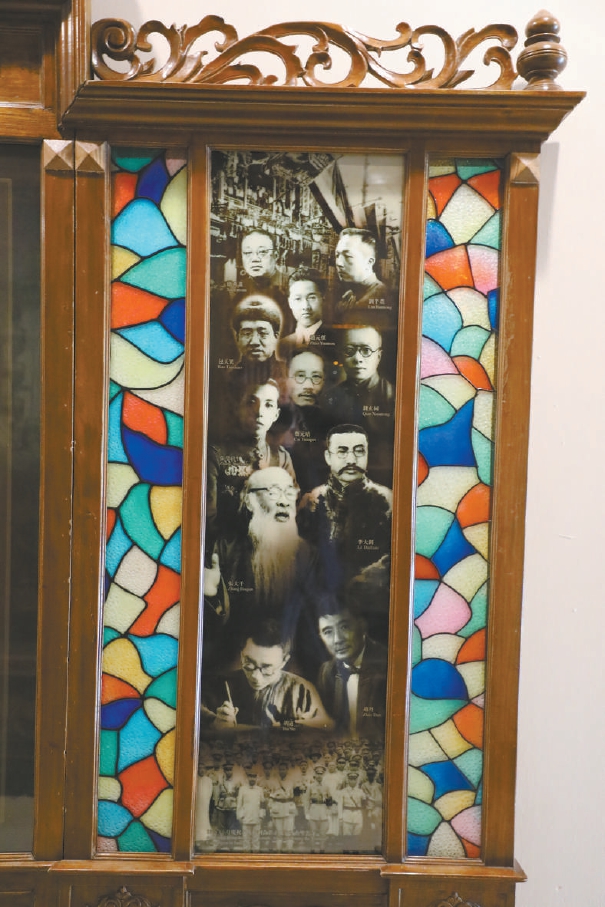
Oriental Hotel is like a handsome oriental girl, hiding in the hutong at the junction of Wanming Road and Xiangchang Road in Nancheng, Beijing. During the Republic of China, Wanming Road was once a bustling commercial, residential, entertainment and shopping center. Chen Duxiu, Li Dazhao, Cai Yuanpei, Lu Xun and other celebrities gathered here; The works of painter Guan Shanyue were born here; The news of the victory of the Northern Expedition was announced by Bai Chongxi here: The New World Amusement Park, where Chen Duxiu, commander-in-chief of the May 4th Movement, was arrested for the second time, is just a few steps away …
From 1914 to 1918, the town hall presided over the planning and implementation of the new urban area of Xiangchang. Xiangchang new urban area reaches Xiannongtan in the south, Hufangqiao Street in the north, Hufang Road in the west and Xueyuan Road in the east, covering an area of 22 hectares. In the twenties and thirties of last century, the buildings in Peiping were full of foreign styles. Up to now, there are still commercial and residential buildings on Wanming Road, and old buildings such as Tai ‘anli, Huakangli and Dongfang Hotel stand tall.
Oriental Hotel opened on February 19th, 1918, with four three-story buildings in the shape of a mouth. The hotel is equipped with elevators, heating, telephones and other facilities, and there are 7 taxis to pick up and drop off guests free of charge every day. In the same year, there was a four-story boat-shaped building opposite the Oriental Hotel, that is, the "New World Playground", which was built after the Shanghai World.
The present Oriental Hotel consists of an old building built in 1918, a southeast building rebuilt in 1953 and a high-rise building built in 1985. The three buildings in different periods have their own characteristics. Walking into the old building built in 1918, the red and white fa? ade and exquisite carved wrought iron balcony are full of artistic flavor.
Walking slowly upstairs along the stairs, colorful glass comes into view, with creaking mahogany stairs at your feet, carved beds, simple wardrobes, Chinese wine cabinets and dressing tables, writing desks and chairs practical and simple.
Oriental Hotel is an important venue for the New Culture Movement and the May 4th Movement. Chen Duxiu, Li Dazhao, Cai Yuanpei and Hu Shi all stayed in the Oriental Hotel. Room 205 is the room where Chen Duxiu stayed. According to the records, Chen Duxiu had a rest in this room on June 11th, 1919. Friends learned that he was going to the opposite New World to distribute leaflets that night, and they were worried about the danger, so they all dissuaded him. At 10 o’clock that night, Chen Duxiu was in the dark southwest of the five-story garden in the New World, holding a leaflet and trying to throw it at tourists. He was discovered by the patrol agent Li Wenhua and others who were lurking and tracking, arrested him, and was imprisoned by the Jingshi Police Department for three months. He was released only after being rescued by Professor Liu Shipei of Peking University and other people from all walks of life.
Room 209 is the room where Cai Yuanpei, president of Peking University, lived. Cai Yuanpei pursues the policy of "all-inclusive, a hundred schools of thought contend" academically. During his tenure as president of Peking University, he carried out a series of reforms, such as advocating academic research, letting a hundred schools of thought contend, selecting talents in an eclectic way, and treating Chinese and foreign teachers equally, thus cultivating and bringing up a group of young people with new ideas. On August 18th, 1922, President Cai led the Russian delegation and hosted a banquet in honor of the Soviet delegation that had visited China.
Room 206 is the room where Lu Xun lived. In 1926, Lu Xun took refuge here with his whole family in the direct war. The desk lamp in the room and the exquisite statues of Mo Bao and Lu Xun, the figure of the writer who was writing under the desk lamp suddenly reappeared. At the northernmost part of the road north of Ming Wan Road, it is the time-honored Xinfenglou. Lu Xun is a gourmet. From 1912 to 1926, he lived in Beiping for 14 years, leaving 65 restaurants in his diary, including the time-honored Eight Buildings and Eight Houses.
Oriental Hotel is the place where the founders of Chinese Pinyin get together every month. At the invitation of Qian Xuantong, li jinxi, Qian Xuantong, Zhao Yuanren and other 11 people formed the Pinyin Research Society of Mandarin Roman Characters and began to study Mandarin Roman Characters. From 1925 to 1926, li jinxi lived in Room 106 on the first floor, Qian Xuantong lived in Room 304 on the third floor, Zhao Yuanren lived in Room 107 on the first floor and Liu Bannong lived in Room 105 on the first floor. They stay in the Oriental Hotel for a few days every month to discuss the scheme of phonetic notation in Mandarin Rome. In 1926, the research result "The Pinyin Method of Mandarin Roman Characters" was officially promulgated by the Beiyang government, which laid the foundation for the current scheme of Chinese Pinyin.
Lin Yutang once stayed in Room 204. Lin Yutang’s works blend eastern and western cultures, and his novel "Clouds in Peking" adopts a chapter-by-chapter writing method, which vividly shows various figures in China society in the late Qing Dynasty and the early Republic of China, and has new feelings every time after reading it.
Hu Shi, who had just returned from studying abroad, was invited to be a professor in Peking University. He was personable and frequented the Oriental Hotel. As an important representative in the early days of the New Culture Movement, his "On Literary Improvement" initiated the vernacular, and created a series of works, which were compiled into "Trial Collection", leaving many romantic poems in vernacular.
After the founding of New China, the celebrities received by Oriental Hotel are even more dazzling. Besides party and state leaders such as Zhou Enlai and Zhu De, artists such as Ba Jin, Lao She and Ding Ling also left footprints here. Painters Fu Baoshi and Guan Shanyue stayed in the Oriental Hotel for three months in July, 1959, and created a huge Chinese painting "There are so many beauties in the mountains" to present the 10th anniversary of the National Day. The painting was inscribed by Mao Zedong and hung in the welcome room of the Great Hall of the People. (Shamin)
